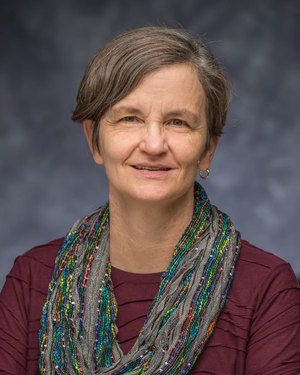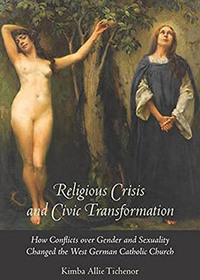
- Independent Scholar
- Affiliation During NDIAS Fellowship: University of Chicago
- Residential Fellow (2014-2015)
- "Gender Politics, European Catholicism, and the Global South: The Transformation of Faith, Culture, and Politics in the Twentieth Century"
Allie Tichenor is a modern European historian affiliated with the University of Chicago. She specializes in twentieth-century German history, gender and sexuality, and Catholicism in the transatlantic world. Her current research project is a transnational study of the competing theologies and conflicting understandings of Church, of pastoral care, and of the divisive issues of gender, social justice, and human rights out of which emerged in the late-twentieth century a smaller, more conservative and activist European Church. The study aims to overcome the religious blind spot in contemporary European history by detailing the contraction and intensification of Catholic life in Europe as part of a global story of Catholic expansion.
Her first book, The Catholic Church, Gender Politics, and the West German Public, 1959-1989, is currently under contract with Brandeis University Press for publication in the series Gender, Culture, Religion and Law. An article, “Protecting Unborn Life in the Secular Age: The Catholic Church and the West German Abortion Debate, 1969-1989,” was recently published in the Journal of Central European History (2014). She has written numerous scholarly reviews for H-German Net, as well as completed German to English translations for several edited volumes.
Dr. Tichenor’s research has been supported by grants from the Mellon Foundation, the German Academic Exchange Service (DAAD), and the Institute for European History in Mainz (IEG).
Publications
-
Religious Crisis and Civic Transformation: How Conflicts over Gender and Sexuality Changed the West German Catholic Church
Brandeis University Press, 2016

This book offers a fresh interpretation of the connection between the West German Catholic Church and post-1950s political debates on women’s reproductive rights and the protection of life in West Germany. According to Tichenor, Catholic women in West Germany, influenced by the culture of consumption, the sexual revolution, Vatican II reforms, and feminism, sought to renegotiate their relationship with the Church. They demanded a more active role in Church ministries and challenged the Church’s hierarchical and gendered view of marriage and condemnation of artificial contraception. When the Church refused to compromise, women left en masse. In response, the Church slowly stitched together a new identity for a postsecular age, employing an elaborate nuptial symbolism to justify its stance on celibacy, women’s ordination, artificial contraception, abortion, and reproductive technologies. Additionally, the Church returned to a radical interventionist agenda that embraced issue-specific alliances with political parties other than the Christian parties. In her conclusion, Tichenor notes more recent setbacks to the German Catholic Church, including disappointment with the reactionary German Pope Benedict XVI and his failure in 2010 to address over 250 allegations of sexual abuse at twenty-two of Germany’s twenty-seven dioceses. How the Church will renew itself in the twenty-first century remains unclear. This closely observed case study, which bridges religious, political, legal, and women’s history, will interest scholars and students of twentieth-century European religious history, modern Germany, and the intersection of Catholic Church practice and women’s issues.